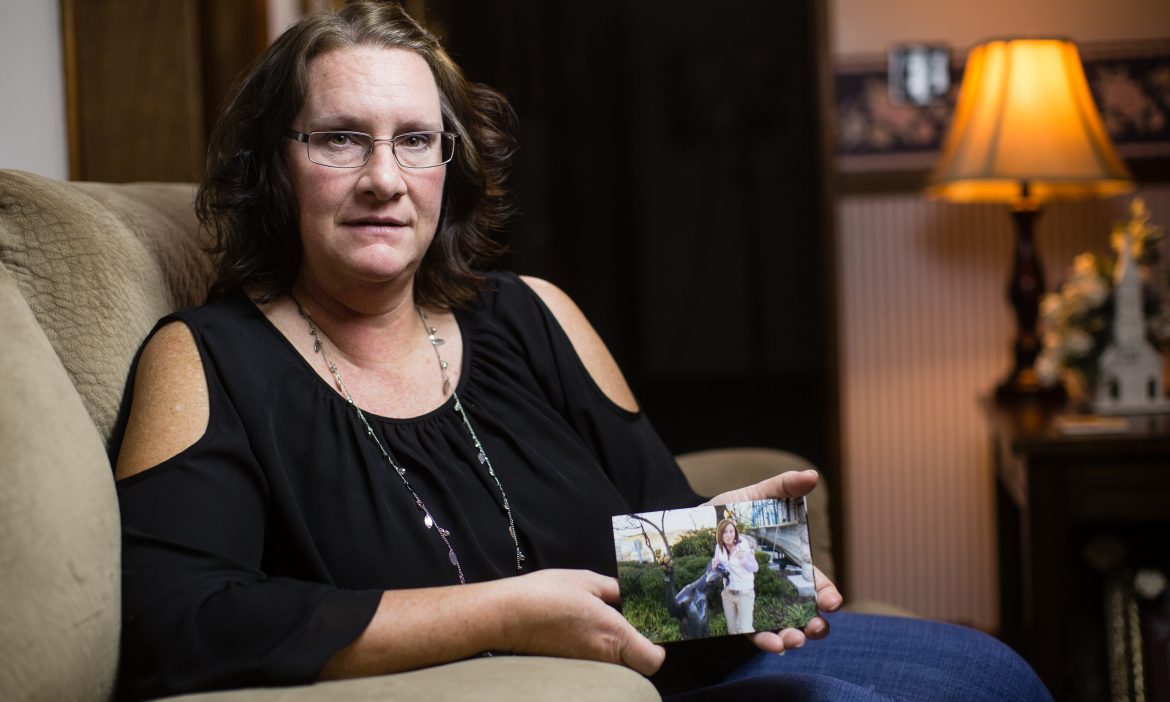Lori Johnson, a BlueCross employee pictured above, lost her daughter Felicia to an addiction to pain medication. Her family’s tragic story is but one of the thousands that our state has to tell about the opioid epidemic.
Today, the United States recognizes opioid misuse as national health crisis. Years ago, BlueCross BlueShield of Tennessee recognized the crisis on a state and local level, and we’ve been working to slow the tide ever since.

What we’ve done
As the state’s leading health insurer, we started this work in 2013, after seeing an alarming trend of mothers using opioids while pregnant in the Upper Cumberland/East Tennessee region. We began partnerships to support babies being born dependent on drugs – as well as their mothers.
From there we reached out directly to the provider community, increasing our opioid education efforts, asking what their opioid prescribing entailed and helping them recognize the risks associated with these drugs. We also created an award-winning public service campaign to help people understand how to secure and dispose of their prescriptions, which in turn helps prevent accidental misuse.
We’ve reduced the number and dosages of opioid prescriptions delivered to our members, primarily by modifying allowing quantity limits and adding prior authorization requirements. (In many cases, members were receiving significantly higher quantities than were medically necessary.)
Since 2015, we’ve seen a 15 percent decrease in the number of opioid prescriptions per member per month.Because our mission extends beyond just our own members, our health foundation has invested more than $5.4 million in efforts across the state to provide prevention and treatment support.
But the Tennessee Department of Health reports that while prescriptions have been dropping, opioid deaths have continued to rise. In 2017, a record 1,268 Tennesseans died of an opioid overdose.
We’ve made real progress, but there is still much work to be done.
What’s next
We recognize many of our members legitimately struggle with chronic pain. Many more have episodic pain crises where opioid prescription is part of a necessary treatment plan.
We’re also sensitive to the needs of members undergoing oncology, palliative and end-of-life care, so we always approve prior authorizations for those members.
As part of a multi-year effort, and for the safety of our members, we’re making more changes related to how we cover opioids and pain treatment. We are confident can make a meaningful difference in addressing the dangers of opioids.

As of Jan. 1, 2019, we’ve taken the following steps to help save the lives of Tennesseans:
- Creating seven-day quantity limits at initial fill on short-acting opioids for acute pain
- Enhancing prior authorization requirements for short-acting opioids used for an extended period of time
- Lowering allowed morphine milligram equivalent dose (MME) to 120mg per day without authorization
- Removing OxyContin from our formulary and replacing it with drugs that are less likely to be abused
- Adding benefits for alternative pain treatments, including acupuncture
Please note that though we are approving all prior authorizations for patients with certain conditions, but these members still must go through the prior authorization process.
We’ve worked closely with physician advisors to guide us on these important safety measures, making sure prescriptions are appropriate and medically necessary.
To support the providers we work with, BlueCross will share education and best practices, identify high-risk patients and created treatment plans, and evaluate prescription plans compared to peers. We’ve also alerted pharmacists of dangerous drug combinations.
Opioid abuse destroys lives and families – and that’s why we’re committed to fighting this epidemic from every angle.
We’re motivated by a desire to ensure the safety and well-being of all people – not just our members. Because it’s the right thing to do.
How you can learn more
Not all of the changes may apply to you. If you’re not sure which ones affect you, talk with your doctor about your options.
To learn more about the opioid epidemic and our efforts to end it, please click to view the educational resources below.
Expert perspectives
- Prescriptions are down, but opioids remain a public safety threat: op-ed by Dr. Andrea Willis, chief medical officer
- Confronting the opioid crisis: Q&A with Dr. Natalie Tate, PharmD, vice president of pharmacy
The human toll of the opioid epidemic
Coverage specifics
- Understanding your prescription drug benefits
- Complete list of drugs your plan covers
- Opioid education mailer
- Pharmacy changes mailer
- BlueCross makes changes to opioids coverage in 2019 (press release)


